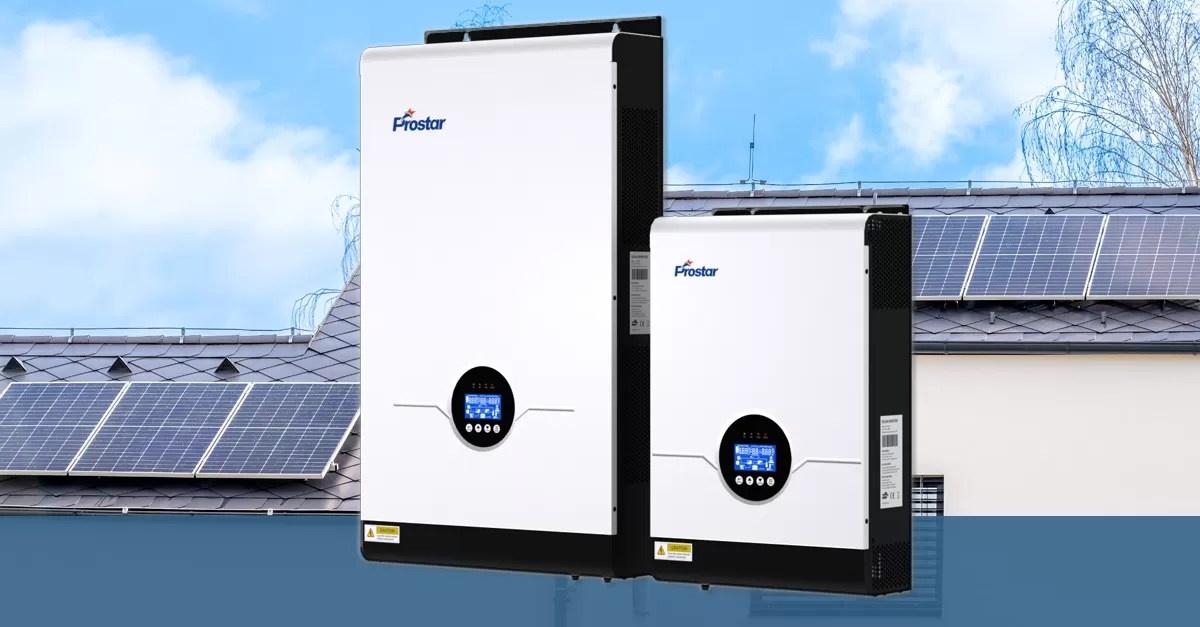In an era where sustainable energy solutions are gaining momentum, solar power stands at the forefront as an eco-friendly and cost-effective source of electricity. One of the key components of a solar power system is the inverter, which converts the direct current (DC) produced by solar panels into alternating current (AC) suitable for household use. While traditional inverters have been the go-to choice for many years, hybrid inverters are emerging as a game-changer in the solar energy landscape.
In this article, we will explore the concept of hybrid inverters and delve into the numerous benefits they offer for maximizing solar energy utilization.
Understanding Hybrid Inverters
Hybrid inverters for solar, also known as multi-mode inverters, are advanced devices specifically tailored to work with solar panels and energy storage systems such as batteries. Unlike conventional inverters that function merely as DC to AC converters, the hybrid inverter for solar incorporates an additional layer of intelligence. This sophisticated technology enables them to effortlessly transition between different power sources and modes of operation.
The Dual Functionality
One of the primary features that set hybrid inverters apart is their dual functionality. These inverters can perform two crucial tasks:
- Solar Power Conversion: During the day when sunlight is abundant, hybrid inverters efficiently convert DC power generated by solar panels into AC power for immediate use in your home. This helps reduce your reliance on the grid, leading to energy cost savings and a smaller carbon footprint.
- Battery Integration: Hybrid inverters can also be paired with energy storage systems, such as lithium-ion batteries. They store excess solar energy generated during the day for use during the night or during cloudy days when solar production is lower. This ensures a consistent and reliable power supply, even when the sun isn’t shining.
Maximizing Solar Energy
Now, let’s delve into the specific benefits of hybrid inverters in maximizing solar energy utilization:
1. Efficiency Boost
Hybrid inverters are renowned for their high efficiency levels. They can extract more energy from your solar panels and convert it into usable electricity with minimal losses. This translates to increased energy savings and a quicker return on your solar investment.
2. Energy Independence
By integrating batteries with hybrid inverters, you can achieve a degree of energy independence. This means you are less reliant on the grid, which can be especially valuable during power outages or in remote areas where grid access is limited.
3. Load Shifting
Hybrid inverters allow for intelligent load shifting. They can prioritize the use of stored solar energy during peak electricity rate hours, helping you reduce your overall energy expenses.
4. Grid Interaction
These inverters can interact with the grid in multiple ways. They can feed excess energy back into the grid, earning you credits through net metering programs. Additionally, they can seamlessly switch to grid power when solar and battery resources are insufficient, ensuring uninterrupted electricity supply.
Conclusion
In conclusion, hybrid inverters are a remarkable addition to the world of solar energy systems. They offer dual functionality, increased efficiency, and the ability to harness solar power more effectively. By integrating hybrid inverters into your solar setup, you can maximize energy savings, reduce your environmental impact, and enjoy a more reliable source of electricity.
For those looking to embark on the sustainable journey of solar power, hybrid inverters are a promising choice. Embrace the future of solar energy with hybrid inverters and unlock the full potential of the sun’s abundant power.
FAQ’s
1. Are hybrid inverters compatible with all solar panels?
Yes, hybrid inverters are designed to work with a wide range of solar panels, making them a versatile choice for solar power systems.
2. Do hybrid inverters require special maintenance?
Hybrid inverters are low-maintenance devices, requiring periodic checks and firmware updates. However, their maintenance needs are minimal compared to traditional inverters.
3. Can hybrid inverters be retrofitted into existing solar setups?
In many cases, hybrid inverters can be retrofitted into existing solar power systems, provided they are compatible with the system’s specifications.
4. What is the typical lifespan of a hybrid inverter?
Hybrid inverters typically have a lifespan of 10 to 15 years, making them a durable and long-lasting investment.
5. How do hybrid inverters contribute to reducing electricity bills?
Hybrid inverters reduce electricity bills by optimizing energy usage, storing excess energy, and reducing reliance on grid power, ultimately leading to cost savings.

